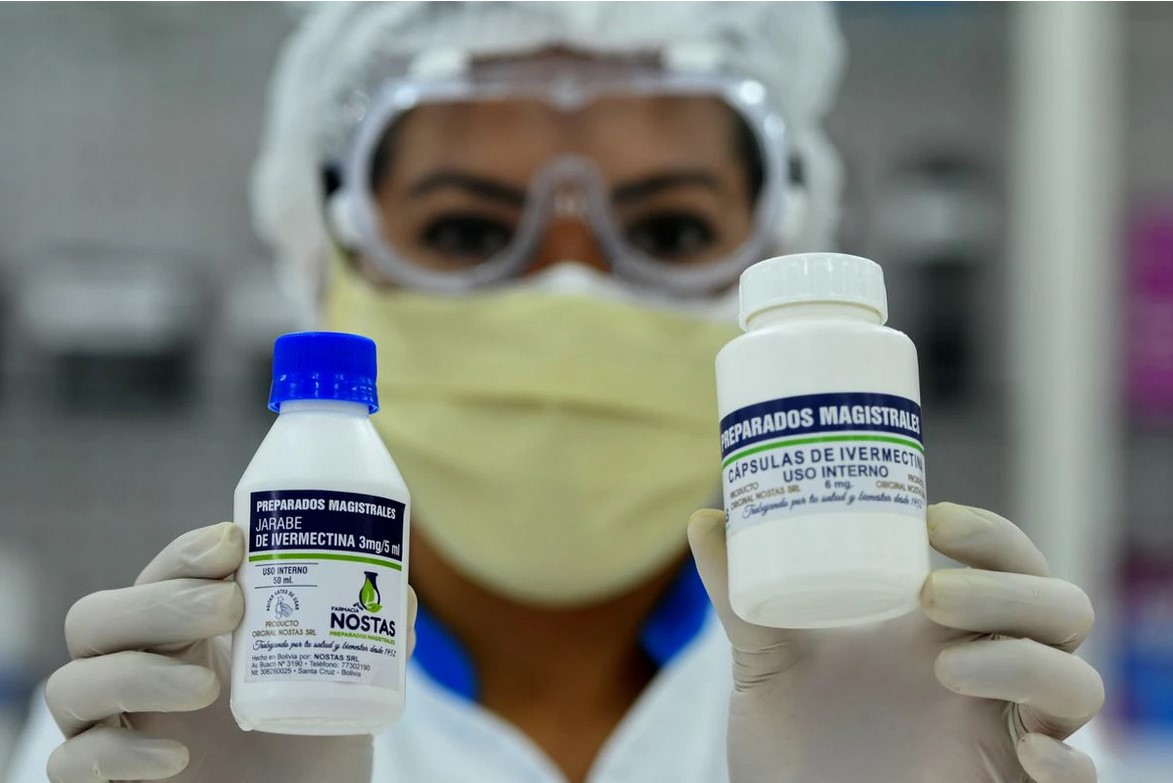Amid the deadly second Covid wave, Ivermectin, a drug that had become as controversial as India’s handling of the pandemic itself, has just – finally – been dropped from the treatment protocol
(AF) India’s Directorate General of Health Services (DGHS) on Monday announced revised guidelines for treating Covid, dropping all medicines including the widely-used and controversial Ivermectin, Hydroxychloroquine and Favipiravir as approved drugs, except antipyretic and antitussive drugs for asymptomatic and mild cases.
However, the medical fraternity is still divided on their use despite the lack of strong evidence of its success in treating the dreaded disease, while a few may continue to use these medicines, sources fear.
The DGHS guidelines also differ from those provided by the Health Ministry and the Indian Council of Medical (ICMR) – the apex body in India for the formulation – which recommend both Ivermectin and Hydroxychloroquine.
Under the new DGHS guidelines, asymptomatic Covid patients (except those with co-morbidities) have been advised against taking any medication, while patents with mild symptoms have been advised to use (antipyretics) medication for prevention or reduction of fever, and antitussives for suppressing coughing.
“No other Covid-19-specific medication is required. The patient may have to be investigated further if symptoms persist or deteriorate,” the guidelines said.
The guideline has also restricted the use of Remdesivir, an antiviral drug in great demand globally – by advising its use for “specifically hospitalised Covid patients with moderate or severe symptoms, and who were placed on oxygen support within 10 days of the disease onset.”
Political flashpoint
In the raging second wave of Covid that took the death toll to over 350,000 in India, if there’s one drug that not only emerged as a household name- but also a political flashpoint, it is Ivermectin.
While the drug did not feature in the health ministry’s medical guidelines last year, as the second wave created havoc and drugs like Hydroxychloroquine and antibiotics like Azithromycin were found to be ineffective, Ivermectin suddenly emerged as an elixir and started being prescribed, from the beginning of the year, much more liberally than recommendations.
That was despite the absence of any discernible evidence on how effective this common, widely-available, and cheap antiparisitic drug was in treating the virus.
“Ivermectin became a rage because there was no other medication for Covid and subsequently the medicines went through the test of time during which their use assured many that these were not only useful as prophylactic but could be used for therapy too,” Ravindra Mehta, Chief of Pulmonary at Apollo Specialty Hospitals, Bangalore, told Asia Financial.
As Indian states like Goa, Karnataka, and Uttarkhand allowed the use of Ivermectin to all its adult residents as a Covid prophylactic, New Delhi in April 2021 too joined the bandwagon to “recognise” the low evidence of Ivermectin therapy and said that it “may be” used for those with mild cases and in home isolation.
In May, the ICMR also updated its guidelines and started suggesting Ivermectin or Hydroxychloroquine as optional treatments for mild cases.
However, alarmed by its overuse, in mid-May World Health Organization jumped in and warned that the general use of Ivermectin is for treatment of parasitic infections – not for Covid.
“Safety and efficacy are important when using any drug for a new indication. WHO recommends against use of Ivermectin for Covid except within clinical trials,” Soumya Swaminathan, WHO’s chief scientist, tweeted.
Ivermectin’s manufacturer MSD, or Merck, also added that its scientists were still “carefully examining findings of all available and emerging studies of Ivermectin for treatment of Covid”.
Experiential use
But according to Mehta of Apollo, new guidelines dropping use of this drug may not mean that local physicians totally stop using them.
“Many physicians may still hold on to soft data or their personal experiences on their patients and may continue to use these drugs including Ivermectin,” he says.
However, as an upside of the new guidelines, Mehta said: “India started wrong but is now realizing that Covid treatment should be kept simple and minimal.”
























